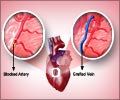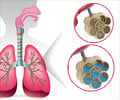- Congenital Mitral Stenosis With or Without Associated Defects - (http://circ.ahajournals.org/cgi/content/full/102/suppl_3/III-166)
- Mitral Stenosis - (http://www.emedicine.com/med/topic1486.htm)
- Hospitalization statistics for Mitral valve disease: - (http://www.wrongdiagnosis.com/m/mitral_valve_disease/stats.htm#medical_stats)
- Congenital Mitral Stenosis - (http://www.emedicine.com/ped/topic2517.htm)
- Mitral valve regurgitation - (http://www.nlm.nih.gov/medlineplus/ency/article/000176.htm)
- Heart & Vascular Institute (Miller Family) - (http://www.clevelandclinic.org/heartcenter/pub/guide/disease/valve/mvrepairfaq.htm)
Treatment of Mitral Valve Regurgitation
In patients with heart failure doctors follow the New York Heart Association [NYHA] classification to establish the best treatment method. Patients are classified in four categories depending on their symptoms with exertion.
In non-symptomatic patients with chronic mitral regurgitation, their cardiac output is not compromised. They do not need any specific treatment, although they are closely monitored with regular echocardiograms.
In symptomatic patients with chronic mitral regurgitation, medications are directed to relieve the symptoms. Some of the medications increase the cardiac output & heart’s contracting ability, reduce blood pressure or remove excess water and sodium from the body.
In acute mitral regurgitation, the patient should be evaluated for heart attack first and treated promptly. Diuretics should be started in case of pulmonary congestion. Blood pressure must be kept normal and atrial fibrillation must be controlled.
Surgery is indicated in acute MR patients in congestive heart failure or shock. Chronic MR patients with class III or IV symptoms require surgery. Intervention is also recommended for patients with Class I or II symptoms but a low ejection fraction. Patients with continued infection from endocarditis or systemic embolization are also candidates for operation.
Antibiotics in patients with rheumatic fever can prevent rheumatic heart disease.
Any patient with mitral regurgitation should take














